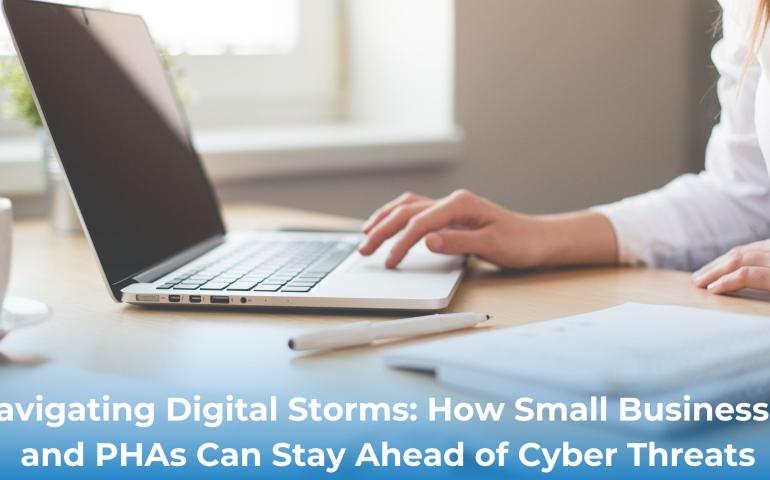Apprenticeships -- the “Other” College (Minus the Debt)
Apprenticeship vs 4 Year College - What image comes to mind when you hear the word “apprenticeship”? Many people envision a young person in blue overalls, banging a hammer against a metal sheet on a circa-1930’s factory floor. If anything close to that came to mind, it is time to reboot your thinking. While the origins of apprenticeships in the U.S. may have been confined to manufacturing, they are now expanding into professional services and highly skilled fields, such as banking, cybersecurity, accounting, and health care. As a matter of fact, data shows there are over 500,000 employers actively managing apprenticeship programs. These programs are no longer a second-class option for career entry or shifts. Rather, they are a smart choice for those who may have a sense of their career direction, but want to jump in and not have to wait four or more years of traditional college to afford a middle-class lifestyle. As one former Labor Secretary quipped, ”apprenticeships are the other college but without the debt.”
Apprenticeship vs 4 Year College

Some openly question whether the investment in college is worthwhile (actually, a rapidly growing number of “some”). It is no accident that as college costs have increased over 25% at private colleges and almost 30% at their public counterparts (approaching $100-250K over four years), registered apprenticeships have become increasingly attractive for many. More to the point, since 2000 the growth in the wage gap between high school and college graduates has slowed to a halt;
25 percent of college graduates now earn no more than does the average high school graduate. -Federal Reserve Bank of New York
Take this in a moment. This means that one-quarter of college graduates walk out of their 4+ years of study, shiny diploma in hand, and realize they are starting their careers earning what they could have out of high school, only now saddled with up to a few hundred thousand dollars of debt to overcome.
Apprenticeship: Earn while You Learn
According to the US Chamber of Commerce, public opinion is beginning to shift, with just 16% of those asked believing a four-year degree prepares students for a well-paying job in today’s economy. Apprenticeships are not a panacea, but they do represent a solid alternative to college. They do so in the following ways:
- Students learn while earning, with employers subsidized the cost.
- The risk of choosing a major in a field that may not lead to marketable job skills...this is reduced dramatically.
- The psychological and real albatross of debt is reduced or avoided.
To boot, employers are happy to foot the bill, reducing their hiring risks while feeling satisfied they are giving back to the community in the form of a job opportunity. There are many clear upsides to an apprenticeship program, including research that shows apprentices can be more productive and produce loyal workers, with high morale that can spread throughout the workforce.
One successful example was when Penske Truck Leasing needed to hire 2,000 additional technicians in 2018, they decided to fill the need by providing on-the-job certification programs for technicians. Another example is Adobe’s Digital Academy, which targets its apprenticeship program to low-income workers by providing scholarships for tech training programs that enable successful students to move on to 3-month paid apprenticeships in technology jobs. The highest performers of these apprentices are then hired by Adobe full-time.
Apprenticeship vs 4 Year College: the Fiscal Side

Knowing it makes complete fiscal sense at the federal and government level, and to put even more enticement into the mix, the US Department of Labor funds many registered apprenticeship programs, knowing the effects of keeping people out of unemployment lines while local talent is developed. States like Montana and about a dozen others provide tax incentives so that a business that sponsors an apprentice receives $750 ($1,500 for a veteran).
Employers are learning that when they invest in talent early, they not only expand their talent pipeline but also develop workers that are more likely to stay with them for the long haul.
The KP Apprenticeship Model
KP Scholars’ Internship and Apprenticeship programs in Cybersecurity and Project Management are registered in Connecticut and are waiting for validation in half a dozen other states. KP’s registered apprenticeships are part of our talent development model, which provides classroom instruction, experiential learning, and real-world work experience in several industries, including the following:
- Advanced Manufacturing
- Banking and Finance
- Healthcare
- Information Technology
- National Security
All programs are run per the KP Professional Maturity Model (KP PMM) and tailored to the destination careers’ recognized standards. For example, participants in the cybersecurity program are guided through activities that build the knowledge, skills, and abilities defined by the NICE Cybersecurity Workforce Framework. Employers augment this focus with additional requirements that are specific to their hiring needs. With this level of focus incorporated into the student’s training regimen, the approach generally prepares students and specifically targets their efforts to be those they can highlight to actual employers. KP’s goal is to ensure its talent is well prepared for the technical elements of their careers and the social element required to thrive in a professional setting. Thus, the alternative to the standard colleges pays off, rather than burdening down.
Seize the moment of Apprenticeship
Elika
I agree with you there is so much more to learn in an apprenticeship and I could have had less debt should this option been given to me. Construction is a growing field according to the O*Net and I've learned from working with individuals in the industry, experience is preferred and employers prefer to give the knowledge that they require at the company. Before the Pandemic, we had a company who offered construction apprenticeship opportunities in the community to learn the basics of the trade and those who participated informed me that they felt more prepared to work on a site than those who had taken a class. I understand because when you are in a class, as you know, individuals are looking at books and context not engaging in the necessary hands on components. Thanks for the insight.
College isn't for everyone,…
College isn't for everyone, so I agree that apprenticeships are a valid option and should get more attention. The amount of debt that can come with a college education can be overwhelming and it comes with no guarantees. As the popularity of apprenticeships grow, maybe it will drive the cost of a college education down.
College isn’t for everyone....
Mike, I 100% concur! I’d like to piggy back off of you and add that an apprenticeship program put in place for young students early on in their childhood, or teenage stage, is a great alternative. It would alleviate the fear of not knowing what direction to go in or what options are available should they not be able to afford college. Great point Mike.
The options have expanded....
The standout highlight for me is that high school graduates can have confidence knowing that an apprenticeship program is not limited to the traditional trades in Plumbing, HVAC, Electrical and various manufacturing industries. Professional services, high skilled and high level fields have now expanded their reach for top tiered talent by hosting apprenticeship programs. So whether you’re at an entry level stage looking for a lucrative yet inexpensive career alternative, or in need of a career shift, apprenticeships are a worthwhile investment in yourself. Another highlight to me is alleviating a huge mountain debt can be accomplished by going the apprentice route versus the 4 year college route. There’s also an opportunity to earn money and gain knowledge at the same time.
THE OPTIONS HAVE EXPANDED
Duane in high school I remember the only class that could lead to a job was auto class. If you took the class you were able to work on cars in order to gain experience. That was the extent of experiential learning. I agree the highlight of alleviating debt is a huge motivating factor. On the job training, gaining knowledge and earning money in a high demand field is a fantastic option that more students should think about pursuing.
Knowing about options
I wanted to highlight a point Duane made, which is that there are more options than the traditional trades in the apprenticeship world. That’s what KP is here to assist with. The youth will prosper if they have a direct pathway to focus on a specific direction before actually graduating.
Another Option After Graduation
As a site director, it was my job to push potential students to college. Listen to what their needs are and help them decide the best option based on what the college was offering. The problem with this is most of the time the student was not ready for college; nor did they want any of the majors presented. Unfortunately, a parent or family member has drilled into their mind that the only option after high school is college, and it's alright if you don't know what you want to do right now. You will figure it out by your second year.
That's two years of unnecessary debt. Offering students options such as an internship or apprenticeship will help them not only learn a skill but start to generate income. I wish this option was presented by all counselors. It is my hope that as KP continues to expand its geographic footprint, more high schools and parents will see the value in apprenticeships for all scholars.
ANOTHER OPTION AFTER GRADUATION
I agree that counselors should advocate for students by presenting apprenticeships and internships as other options. Counselors are a lot closer to a student's grades and class selections as they progress during high school, than some parents. Therefore, apprenticeships can be recommended throughout their high school years and if counselors partner with their colleagues in Middle and Elementary schools they’ll be able to better assess a student’s interest and even strategize finances and career goals with the parents and students.
I'm struggling with this now…
I'm struggling with this now, because I was always taught the importance of a college education. My son is a freshman in college. He knows he wants to study mechanical engineering, but he wasn't excited about going to college. He is interested in going to a school that will only focus on mechanical engineering so he can learn about car design specifically. We have planned to reconsider that option at the end of his freshman year if he still likes that option. He has mentioned apprenticeships as well, because he had an internship with NASCAR and they discussed that option with him. I love the idea of little or no debt, but I want the be sure he is well prepared for his career. Decisions, decisions....
I see the struggle
Mike, while I believe in the apprenticeship model, I also see where you are coming from. I still believe in universities for those who have a firm goal of who they are and where they want to be. With that said, I dont believe in going to college just to say you did. Doctors, engineers, and teachers as an example, have a clear goal of who they want to be when they mature. This idea, that everyone needs to go to college is possible so they can "show" that they can complete something is kind of a joke to me. Why study for example, general education? In your sons case, sounds like hes already seeing opportunities with is great! I actually have a pretty good friend who use to work for NASCAR teams and absolutely loved it! Wishing the best.
Appealing aspects of an apprenticeship
I believe that apprenticeships are beneficial to those who wish to participate versus attending college full time. Attending college is not feasible for all and supplying individuals with an apprenticeship opportunity offers the hands on experience that so many employers desire. While working with the On the Job Training and Internships programs, I learned that both the employer and participant benefited as the employer was able to create an in depth training plan for the participant to engage in. As the participant learned, the employer could gauge what aspects were being mastered and what techniques needed more attention. While engaging in these opportunities, participants possess an advantage of acquiring the individualized attention that may be overlooked when one begins a position as in most cases during that time employers are requiring someone knowledgeable who can begin working with minimal training. Apprenticeships eliminate some of the risk of elevated turnover rate while giving opportunities for greater retention within participants.
Great Minds Think Alike
I feel the same way. I think apprenticeships would be very appealing to those not interested or ready for college. Skills/Certifications add extreme value to people's potential to succeed after high school. Combine that with no debt and you have something amazing.
Great Alternative
Everyone has different ambitions and goals in life. An apprenticeship is a great alternative to college. Earning money while being trained in your desired field is a win win scenario. I believe as more people become aware of the value of apprenticeships, then more apprenticeships in other fields will become available making it easier to gain a skill.
Apprenticeships Replace- College : Undecided
Some children are asked "what they would like to be" when they grow up and others don't think about it until they are about to graduate from High School. Then there are High School graduates who "think" they know "what they would like to be", pursue a college education, and graduate still undecided on what they'd like to do with the degree or are unable to pursue a career in that field of study. Personally speaking, I started college as a Nursing major and earned my degree as a Bachelor of Science in Business,
Apprenticeships can start as early as Elementary School and continue thru High School. This allows students' minds to grow with the markets and technology. Apprentices build relationships and job opportunities with employers upon High School graduation. Some employers are willing to invest in an Apprentice's college education (scholarships), if additional certifications are needed for employment with the company. An Apprentice also has the benefit of building skills during summer breaks, and the list of OPTIONS go on....
Apprenticeships Replace-College: Undecided
Arlene
You made a good point about changing career pathways while in College. I did the same as I began a path to a High School English Teacher however changed during my Junior year. Do you feel that having an apprenticeship experience earlier in your education would have solidified your path before attending college? I believe that experiential learning opportunities would have given me some ideas regarding educational opportunities in addition to the statement that Jim made regarding educating clients about the reason for acquiring an education. A lot of individuals like myself are first generation students and do not receive that necessary guidance at home because parents are not familiar with the information or for other reasons.
Apprenticeships Replace- College : Undecided
Tonya,
I absolutely agree that experiential learning in an Apprenticeship would have better prepared me for career choices before High School graduation. It would have allowed me to select the career specific courses at no cost to me or my parents. Apprenticeships allow the student to choose their career based on their interest and not necessarily based on parents making the choice for them or lets them get a feel for what's necessary if they do want to follow in their parents footsteps in the same career.
APPRENTICESHIPS REPLACE-COLLEGE: UNDECIDED
I like most people also changed my interest while in college. But it is a known fact that people will change their minds as they grow and learn. I think the need is more exposure in elementary school to even know what the options are. Yes people ask children what do they want to become when they grow up and many times they will say the things they see on tv, or whatever someone in the neighborhood is already doing, because that is what they are familiar with. Exposure at an early age lets children know they have options and then they can dabble into those options as they mature.
New ways to enter the workforce with both feet moving forward
With the job market becoming saturated with inapplicable college degrees and young adults needing certifications or training, the apprenticeship model affords everyone the option to succeed as long as they are willing and wanting to work. I myself completely agree with this alternative to education. While I have nearly 4 years of university, the most satisfying and career shaping training that I have received came from on the job training, and technical certifications I received. I believe that the reward is greater when you are able to focus on job specific training . One of the things that stands out to me from this article is the incentive for employers to engage in apprenticeship programs. As the job market evolves, I believe this should evolve with it. By providing employers with incentives to invest in their employees, I believe that the outcomes will be become increasingly rewarding and the workforce will become more finely tuned with greater opportunities for advancement. Lastly, by offering two routes (college vs. apprenticeship), I feel that those who either can't afford university or do not like the idea of spending 4 years studying for an unknown career will have a plethora of new opportunities that were unknown to them before.
Training & Experience
Although I encourage apprenticeship programs to job seekers, I am also a big advocate for 4 year universities. It really is a matter of the specific student. Generally speaking, university is where students first move out of their parents’ house and learn to stand on their own 2 feet and fend for themselves. It teaches you how to make decisions, network and learn yourself as an individual. While apprenticeships teach you the fundamentals about a career field and you can jump right in. I do feel the added benefit of an employer taking on a candidate and being able to "mold" the candidate is very valuable to the employer and the employee is able to earn a living during this process so yes it is profitable to both parties.
When making the distinction between the two cost should be a factor, but not the sole factor. Using ONet to see Labor Market Information in your community is a great tool and understanding that with the change of technology you want to make sure your field has longevity.








APPRENTICESHIP
APPRENTICESHIP is a great opportunity I was recently informed about specifically in the Construction field, and I wish I knew about this opportunity before I started college and obtained student loans. This is an opportunity to gain skills, obtain a career, and make money while you learn without having to pay to do it. I’m excited to inform more youth and people who’ve been misplaced with work and looking for a new career opportunity.